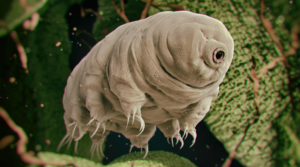They’ve been fired from a gas gun to test their candidacy for panspermia, are believed to have survived the Beresheet lunar probe’s crash-landing on the Moon, can live without water, withstand radiation, survive being frozen and are expected to be one of the final forms of life on Earth when the sun begins to dim in about five billion years.
So it’s no surprise that everyone’s favorite microscopic critter has yet another superpower up its chubby sleeves: some clever chemistry unique to the tardigrade that can stabilize medicines without refrigeration. It has huge potential for getting life-saving treatment to those who need it.
Paros: Watersports, Wine, and Wilderness Wonders
Researchers at the University of Wyoming have homed in on one of the tardigrade’s key survival skills, anhydrobiosis. The team believed that the animal’s ability to enter reversible suspended animation when faced with extreme water loss from cells, could provide the same stable dry storage for biologic medicines that would otherwise require the chilled environment.
Read more: New Atlas
Ask me anything
Explore related questions





